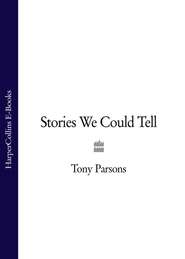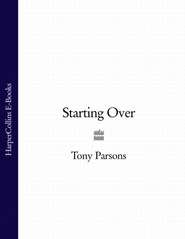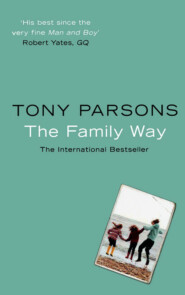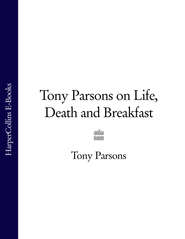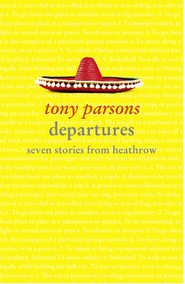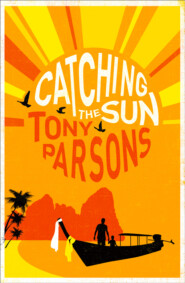По всем вопросам обращайтесь на: info@litportal.ru
(©) 2003-2025.
✖
The Complete Man and Boy Trilogy: Man and Boy, Man and Wife, Men From the Boys
Автор
Год написания книги
2018
Настройки чтения
Размер шрифта
Высота строк
Поля
‘I will! I do!’
For the fifth time in five minutes, I read the opening sentence of an article about the collapse of the Japanese economy.
It was a subject that had come to interest me greatly. I felt sorry for the Japanese people because they seemed to be living in a system which had failed them. But mixed with the human sympathy was a kind of relish. I wanted to read about banks closing down, disgraced CEOs bowing and weeping at press conferences, freshly unemployed expatriates heading for Narita airport and the next flight back home. Especially that. But I couldn’t concentrate.
All I could see was Gina and Richard, although I couldn’t see them very well. Gina was starting to slip out of focus. She wasn’t my Gina any more. I couldn’t imagine the place where she lived, the office where she worked, the little noodle joint where she had her lunch every day. I couldn’t picture any of it. And it wasn’t just her new life that was difficult for me to see. I could hardly see her face in my mind any more. But if Gina was a blur, then Richard was a complete blind spot.
Was he younger than me? Richer than me? Better in bed than me? I would have liked to think that Gina was stepping out with an impotent bankrupt on the verge of senility. But I could see that was probably just wishful thinking on my part.
All I knew was that he was married. Yet even that was suspect – what the fuck did semi-separated mean? Was he still living with his wife? Was she American or Japanese? Did they still sleep together? Did they have kids? Was he serious about Gina or just stringing her along? And would I like it more if he saw her as a casual fling or as the love of his life? Which one would hurt me the most?
‘Look at me now!’
The sight made me freeze.
Pat had very carefully edged his bike out on to the diving board. He was balanced above a ten-foot drop to the pockmarked concrete at the bottom of the pool. Either side of Bluebell, his legs were at full stretch as he steadied himself with the toes of his dirty trainers. I hadn’t seen him looking so happy for weeks.
‘Stay right there,’ I called. ‘Don’t move.’
His smile faded when he saw me start running towards him. I should have gone slower. I should have pretended that nothing was wrong. Because when he saw the look on my face, he started trying to back off the diving board. But it was easier to get on than off and the world seemed to slip into slow motion as I saw one of Bluebell’s stabilisers slide off the side of the diving board, spin in the air for a moment, and then Pat’s little feet inside the dirty trainers were off balance and scrambling for something that wasn’t there, and I was watching my boy and his bike falling headfirst into that empty swimming pool.
He was lying under the diving board, the bike on top of him, the blood starting to spread around his mop of yellow hair.
I waited for him to start screaming – just as he had screamed the year before when he was using our bed for a trampoline, bounced right off and smashed his head against the chest of drawers, and just as he had screamed the year before that, when he had overturned his pushchair by standing up in it and trying to turn around to smile at me and Gina, and just as he had screamed on all the other occasions when he had banged his head or fallen flat on his face or grazed his knees.
I wanted to hear him crying out because then I would know that this was just like all the other scrapes of childhood. But Pat was totally silent, and that silence gripped my heart.
His eyes were closed and his pale, pinched face made him look like he was lost in some bad dream. The dark halo of blood around his head kept growing.
‘Oh Pat,’ I said, pulling the bike off him and holding him far more tightly than I should have. ‘Oh God,’ I said, taking my mobile phone out of my jacket with fingers which were sticky from his blood, frantically tapping in the PIN number and hearing the beep-beep-beep sound of a flat battery.
I picked up my son.
I started to run.
Seventeen (#ulink_980d0814-4c4c-5cc9-aafd-2a3515edfe60)
You can’t run far with a four-year-old child in your arms. They are already too big, too heavy, too awkward to carry with any speed.
I wanted to get Pat home to the car, but I staggered out of the park knowing that wasn’t going to be quick enough.
I burst into the café where we had eaten green spaghetti, Pat still pale and silent and bleeding in my arms. It was lunch time, and the place was full of office workers in suits stuffing their faces. They stared at us open-mouthed, forks twirled with carbonara suspended in mid-air.
‘Get an ambulance!’
Nobody moved.
Then the kitchen doors flew open and Cyd came through them, a tray piled with food in one hand and her order pad in the other. She looked at us for a moment, flinching at the sight of Pat’s lifeless body, the blood all over my hands and shirt, the blind panic on my face.
Then she expertly slid the tray on to the nearest table and came towards us.
‘It’s my son! Get an ambulance!’
‘It will be quicker if I drive you,’ she said.
There were white lines on the hospital floor that directed you to the casualty department, but before we got anywhere near it we were surrounded by nurses and porters who took Pat from my arms and laid him on a trolley. It was a trolley for an adult, and he looked tiny on it. Just so tiny.
Tears came to my eyes for the first time, and I blinked them away. I couldn’t look at him. I couldn’t stop looking at him. Your child in a hospital. It’s the worst thing in the world.
They wheeled him deeper into the building, under the sick yellow strip lights of crowded, noisy corridors, asking me questions about his birthday, his medical history, the cause of his head wound.
I tried to tell them about the bike on the diving board above the empty swimming pool, but I don’t know if it made much sense to them. It didn’t make much sense to me.
‘We’ll take care of him,’ a nurse said, and the trolley banged through green swing doors.
I tried to follow them and caught a glimpse of men and women in green smocks with masks on their faces, the polished chrome of medical equipment, and a kind of padded slab where they laid him down, that slab as thin and ominous as a diving board.
Cyd gently took my arm.
‘You have to let him go,’ she said, and led me to a bleak little waiting area where she bought us coffee in polystyrene cups from a vending machine. She filled mine with sugar without asking if that’s how I liked it.
‘Are you okay?’ she said.
I shook my head. ‘I’m so stupid.’
‘These things happen. Do you know what happened to me when I was about that age?’
She waited for my reply. I looked up at her wide-set brown eyes.
‘What?’
‘I was watching some kids playing baseball and I went up and stood right behind the batter. Right behind him.’ She smiled at me. ‘And when he swung back to hit the ball, he almost took my head off. That bat was only made of some kind of plastic, but it knocked me out cold. I actually saw stars. Look.’
She pushed the black veil of hair off her forehead. Just above her eyebrow there was a thin white scar about as long as a thumbnail.
‘I know you feel terrible now,’ she said. ‘But kids are tough. They get through these things.’
‘It was so high,’ I said. ‘And he fell so hard. The blood – it was everywhere.’
But I was grateful for Cyd’s thin white scar. I appreciated the fact that she had been knocked unconscious as a child. It was good of her.
A young woman doctor came and found us. She was about twenty-five years old, and looked as though she hadn’t had a good night’s sleep since medical school. She was vaguely sympathetic, but brisk, businesslike, as honest as a car wreck.
‘Patrick is in a stable condition, but with such a severe blow to the head we have to take X-rays and a brain scan. What I’m worried about is the possibility of a depressed fracture to the skull – that’s when the skull is cracked and bony fragments are driven inward, causing pressure on the brain. I’m not saying that’s happened. I’m saying it’s a possibility.’
‘Jesus Christ.’
Cyd took my hand and squeezed it.






